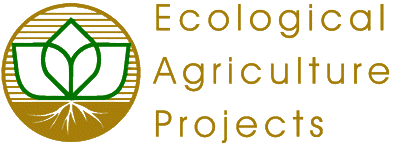

EAP Publications | Virtual Library | Magazine Rack | Search
Join the Ecological Solutions RoundtableSustainable agriculture is under attack by proponents of chemical agriculture. Dennis Avery of the Hudson Institute, a US think tank supported by dollars from the US agri-chemical industry, is currently the most vocal critic. His remarks are regularly quoted by the mainstream agricultural media, and by conventional agribusiness and policy analysts.
Avery believes that the biggest danger to the world's natural environment is lowyield agriculture, a moniker he gives sustainable farming practices. He advocates the use of advanced and high technology farming methods, and claims that it is these approaches, not ecological ones, that will protect the world's remaining wildlife. Avery provides usually unsubstantiated evidence that high yield farming and pesticides actually reduce environmental degradation because these practices save land that would otherwise be farmed. He claims that "High yield farming feeds the world on 5.8 million acres of land .... whereas low-yield organic farming would require 15-16 million acres"1.
The underpinning of Avery's argument is that yields in alternative systems are dramatically lower than what he describes as high yield systems. His figures on land requirements mean he either believes organic yields to be 40% of conventional, or perhaps a bit higher, but even lower than 40% on the additional land area brought into production to compensate for yield losses.
His yield figures are wrong. The latest literature shows that plant yields in organic systems average 10% below those of conventional systems, with animal yields 20% below. Only in cases where conventional production practices are highly intensive (e.g., some production systems in Europe) is organic production at most 40% less than conventional yields2. Avery may also be confusing traditional, low-intensity farming systems, which do have substantially lower yields, with organic systems.
The Avery analysis fails to recognize other important data and doesn't hold up to a critical assessment:
Because high-yield farming is more expensive, then only the world's wealthier farmers will be able to practice it. The food from these systems will only be available to those who have cash. Two-thirds of the planet's people are dependent on what they produce themselves and do not have enough cash to buy their food. How will they benefit from the Avery approach?
There is a willing audience for Avery's work among those looking to justify the status quo. Those willing to look a little deeper will find another story.
Notes
1 Smith, R. 1993. Analyst warns US agriculture it may miss `greatest, last opportunity'. Feedstuffs Oct.4/93. p.3,29. See also Avery, D. 1995. Saving the Planet with Pesticides and Plastic. Hudson Institute, Indianapolis.
2 See N.H. Lampkin and S. Padel (eds.). 1994. The Economics of Organic Farming: an international perspective. CAB International, Wallingford, Oxon, UK.
3 Midmore, P. and Lampkin, N.H. 1994. Modelling the impact of widespread conversion to organic farming: an overview. N.H. Lampkin and S. Padel (eds.). The Economics of Organic Farming: an international perspective. CAB International, Wallingford, Oxon, UK. Pp. 371-380.
4 Oelhaf, R. 1978. Organic Agriculture: economic and ecological comparisons with conventional methods. Allanheld, Osman, Montclair, NJ.
5 See, for example, Pingali, P. 1994. Technological prospects for reversing the declining trend in Asia's rice productivity. In: J.R. Anderson (ed.). Agricultural Technology: policy issues for the international community. CAB International, London. Pp. 384-401.
6 Oldman, L.R. et al. 1991. The extent of human induced soil degradation. In: L.R. Oldman et al. (eds). World Map of the Status of Human Induced Soil Degradation. UNEP and Int. Soil Ref. and Info. Centre, Wageningen, Netherlands.
7 Evans. 1990, cited in Pretty, J.N.. 1995. Regenerating Agriculture. Earthscan, London.
8 Science Council of Canada. 1986. A Growing Concern: soil degradation in Canada. Supply and Services, Ottawa.
9 Hewitt, T.I. and Smith, K.R. 1995:3. Intensive Agriculture and Environmental Quality: examining the newest agricultural myth. Henry A. Wallace Institute for Alternative Agriculture, Washington.
10 See for example, Caldwell, V.B. 1982. Fifty years of Minnesota corn production: sources of yield increase. Agronomy J. 74:984-990.
11 James, P.C. 1995. Internalizing externalities: granular carbofuran use on rapeseed in Canada. Ecological Economics 13:181-184.
12 Hewitt and Smith. 1995 [see note 9].
13 See, for example, Arden-Clarke. 1988 [see note 9]; Robinson, A.Y. 1991. Sustainable agriculture: the wildlife connection. American J. Alternative Agriculture 6:161-166.
Copyright © 1997 Ecological Agriculture Projects
Info Request | Services | Become EAP Member | Site Map
Give us your comments about the EAP site
Ecological Agriculture Projects, McGill University (Macdonald
Campus)
Ste-Anne-de-Bellevue, QC, H9X 3V9 Canada
Telephone:
(514)-398-7771
Fax:
(514)-398-7621
Email: eapinfo@macdonald.mcgill.ca
To report problems or otherwise comment on the structure of this site, send mail to the Webmaster